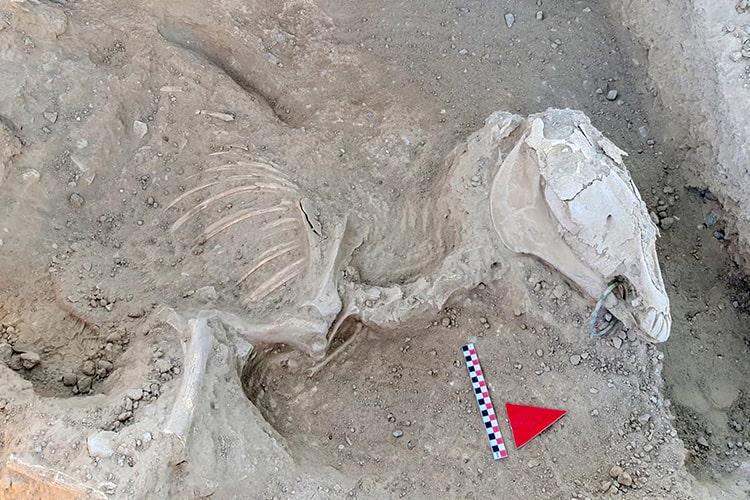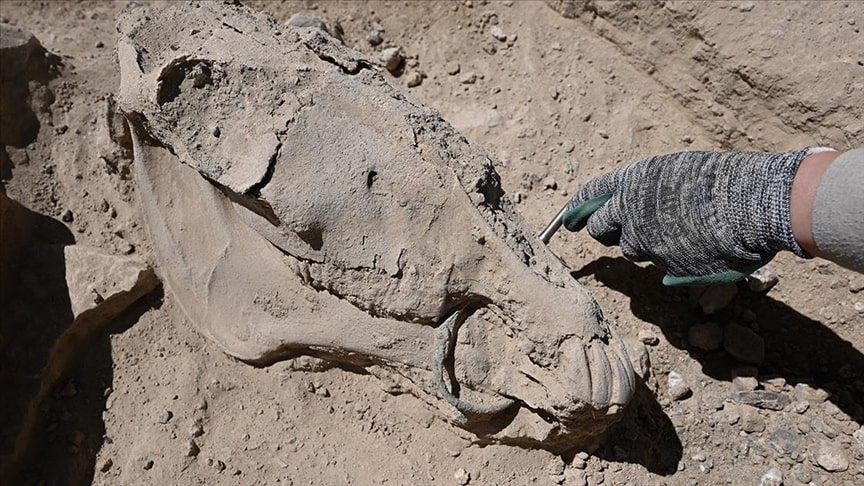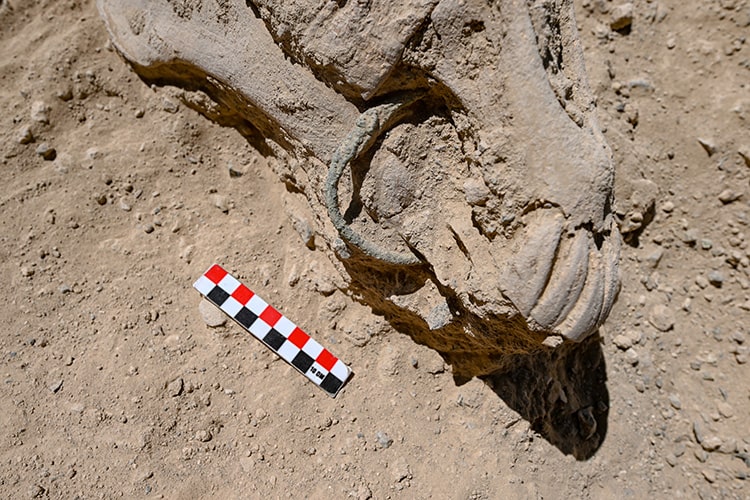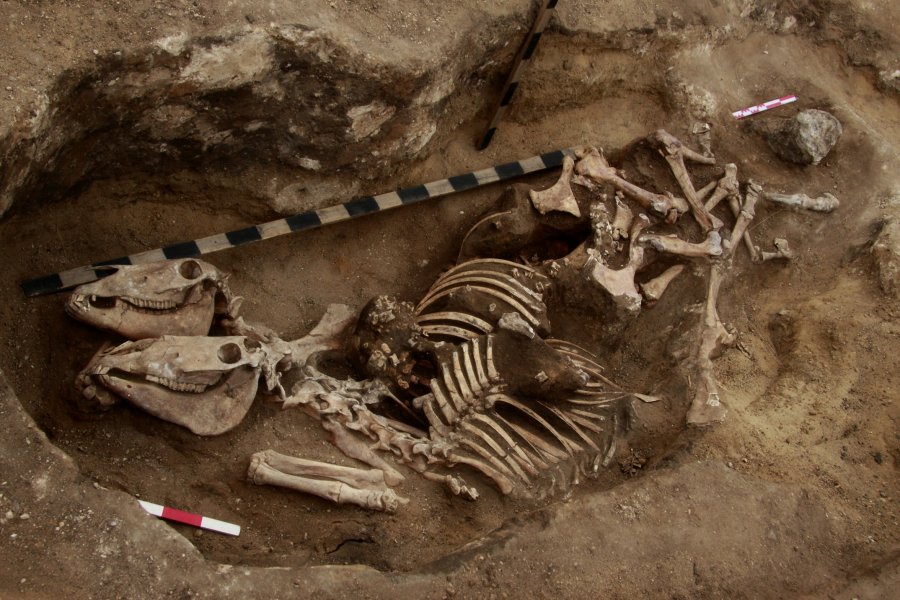Archaeologists unearthed a horse skeleton with a bronze curb bit (a metal piece inserted into its mouth to guide the mount) from the Urartian period in the Van Çavuştepe castle. For the first time in Urartian history, a curb bit in the form of a ring has come to light.

Çavuştepe Castle is located in the Çavuştepe neighborhood on the Van-Hakkari-Iran highway in the Gürpınar District, 25 km southeast of Van. It was built in the middle of the 8th century BC by the Urartian King Sarduri II.
The first excavations in Çavuştepe Castle were carried out under the presidency of Prof. Dr. Afif Erzen and continued to be done for 25 years between 1961 and 1986 while the second-period excavations started in 2014 and have been carried out under the chairmanship of Prof. Dr. Rafet Çavuşoğlu since then.
Excavations continue in Çavuştepe Castle and the necropolis area to the north of the castle.
Last year, at the location where a skeleton believed to belong to the Urartian ruling class was unearthed, this year a at skeleton with a bronze curb bit (a metal piece inserted into the horse’s mouth to control it) was found, as well.

Photo: AA
Prof. Dr. Çavuşoğlu, speaking to an AA correspondent, shared the following information about their ongoing restoration and excavation work at the castle and necropolis area:
“In our work this year, as in every year, we encountered a new discovery. We found a ring-shaped bit placed in the jaw of a horse, made of bronze. This is of significant importance in Urartian archaeology as it is the first time we have come across such an artifact. Previously, we found similar rings as armlets and bracelets on human skeletons. This new finding is of larger size and is placed in the middle of the horse’s mouth. We believe it was used by its owner to control the animal more effectively. This is the first time we have found a bit in the shape of a ring in Urartian history. It shows us the significant role horses played in Urartian society. These discoveries indicate that this place belonged to a ruling class.”

Photo: AA
Archaeology Department Faculty Member Assoc. Prof. Dr. Hakan Yılmaz also stated, “The skull and lower jaw of the horse are intact. We determined that it was an adult horse. This discovery is a first in Turkey. We will examine it in the laboratory. With this finding, we are proving that this place belonged to a ruling class. The area is vast, and we are looking forward to more significant discoveries. The findings continue to excite us.”

The Necropolis (Cemetery) of the castle is approximately 1 km away from the castle, located in the north. Lots of illegal excavations made here before 2017, which have greatly damaged the Urartian Cemetery. In the archaeological excavations, crucially important information about the burial customs of the Urartian society was obtained.